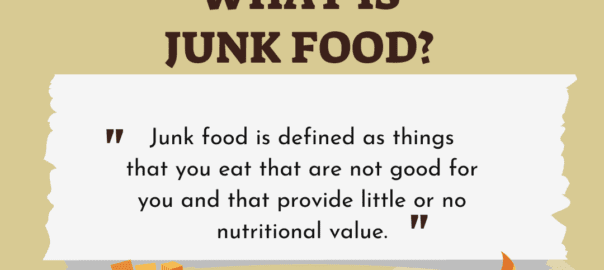Fast food is convenient, but we all know it isn’t the healthiest option. But just how unhealthy can it be? Let’s unpack the dangers of overindulging in fast (and processed) foods.
Processed foods, found in most fast foods, are chemically processed and contain added chemicals, refined ingredients and artificial substances. Whole foods are foods that have not been chemically processed and are typically single-ingredient foods.
Here are some of the reasons to steer clear of processed foods or fast foods.
High in sugar.
Processed foods are generally high in sugar, including high-fructose corn syrup. Too much sugar can lead to insulin resistance, high cholesterol and increased fat accumulation. Sugar consumption is also linked to heart disease, diabetes, obesity and cancer. In addition to foods, sugar-sweetened beverages such as soda, juice, sweet tea and energy drinks also contain damaging amounts of sugar.
Made to crave.
Fast foods (or processed foods) offer just what our taste buds crave — sweet, salty, fatty flavors — and often lead to overconsumption. When the brain perceives a particular food as “rewarding” (such as salty french fries), your body is triggered to crave more of the same thing. Processed foods are carefully manufactured to be highly “rewarding,” but remember, “rewarding” doesn’t equal healthy.
Packed with artificial ingredients.
Processed foods contain multiple artificial ingredients. As a general rule of thumb, if a particular food contains more than five ingredients and if any of those ingredients have names you can’t pronounce, avoid it. Sadly, many foods marketed as “health” foods also contain artificial chemicals and ingredients, including preservatives, colorants, artificial flavors and even chemicals to give food a particular texture.
High in refined carbohydrates.
Refined or simple carbohydrates are quickly broken down by the digestive system, leading to a rapid spike in blood sugar and insulin levels. When blood sugar levels return to normal, cravings for more carbs often follow, leading many people to get caught on a blood sugar roller coaster. Whole foods also often contain carbs, but these are complex carbohydrates, which are not broken down so quickly by the body.
Low in nutrients.
When compared to whole, unprocessed foods, you’ll find few nutrients in processed or fast foods. While many of these foods are enriched with synthetic vitamins and minerals to compensate for the nutrients lost during processing, synthetic nutrients are not the same as the real thing found in whole foods. The more processed foods you eat, the greater your nutritional deficiency will be.
High in unhealthy fats.
Processed foods are often cheap, which means they’re also made with cheap ingredients such as trans fats and processed oils. These unhealthy fats are high in omega-6 fatty acids, which can cause oxidation and inflammation in the body. Studies have shown that people who eat more of these oils have a higher risk of heart disease. Healthy fats such as coconut oil and olive oil are healthier options compared to seed oils and vegetable oil.
Although fast foods are not ideal, if you must eat at a fast-food restaurant, choose the healthiest option available, such as a sandwich made with grilled chicken over a breaded and fried version. And before you swing through the drive-thru, consider the nutritional and health consequences of what you are about to eat.






